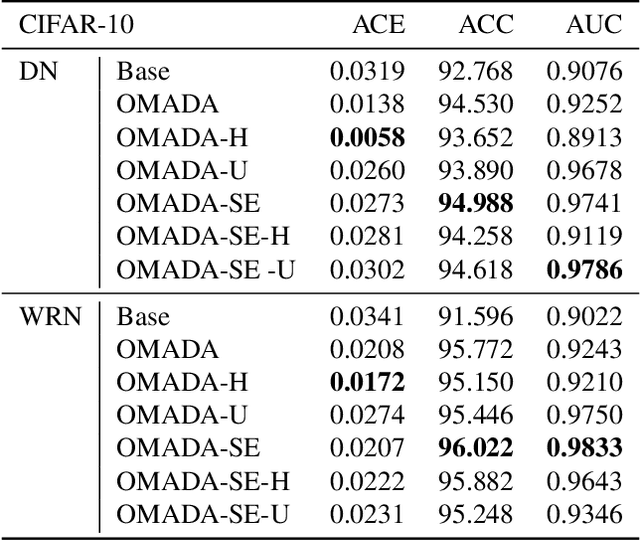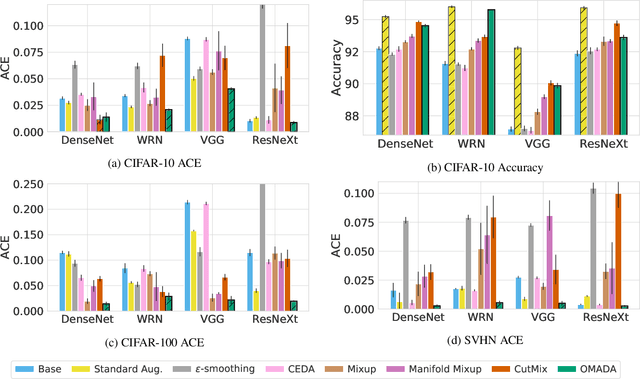On-manifold Adversarial Data Augmentation Improves Uncertainty Calibration
Paper and Code
Dec 16, 2019



Uncertainty estimates help to identify ambiguous, novel, or anomalous inputs, but the reliable quantification of uncertainty has proven to be challenging for modern deep networks. To improve uncertainty estimation, we propose On-Manifold Adversarial Data Augmentation or OMADA, which specifically attempts to generate the most challenging examples by following an on-manifold adversarial attack path in the latent space of an autoencoder-based generative model that closely approximates decision boundaries between two or more classes. On a variety of datasets and for multiple network architectures, OMADA consistently yields more accurate and better calibrated classifiers than baseline models, and outperforms competing approaches such as Mixup and CutMix, as well as achieving similar performance to (at times better than) post-processing calibration methods such as temperature scaling. Variants of OMADA can employ different sampling schemes for ambiguous on-manifold examples based on the entropy of their estimated soft labels, which exhibit specific strengths for generalization, calibration of predicted uncertainty, or detection of out-of-distribution inputs.
 Add to Chrome
Add to Chrome Add to Firefox
Add to Firefox Add to Edge
Add to Edge